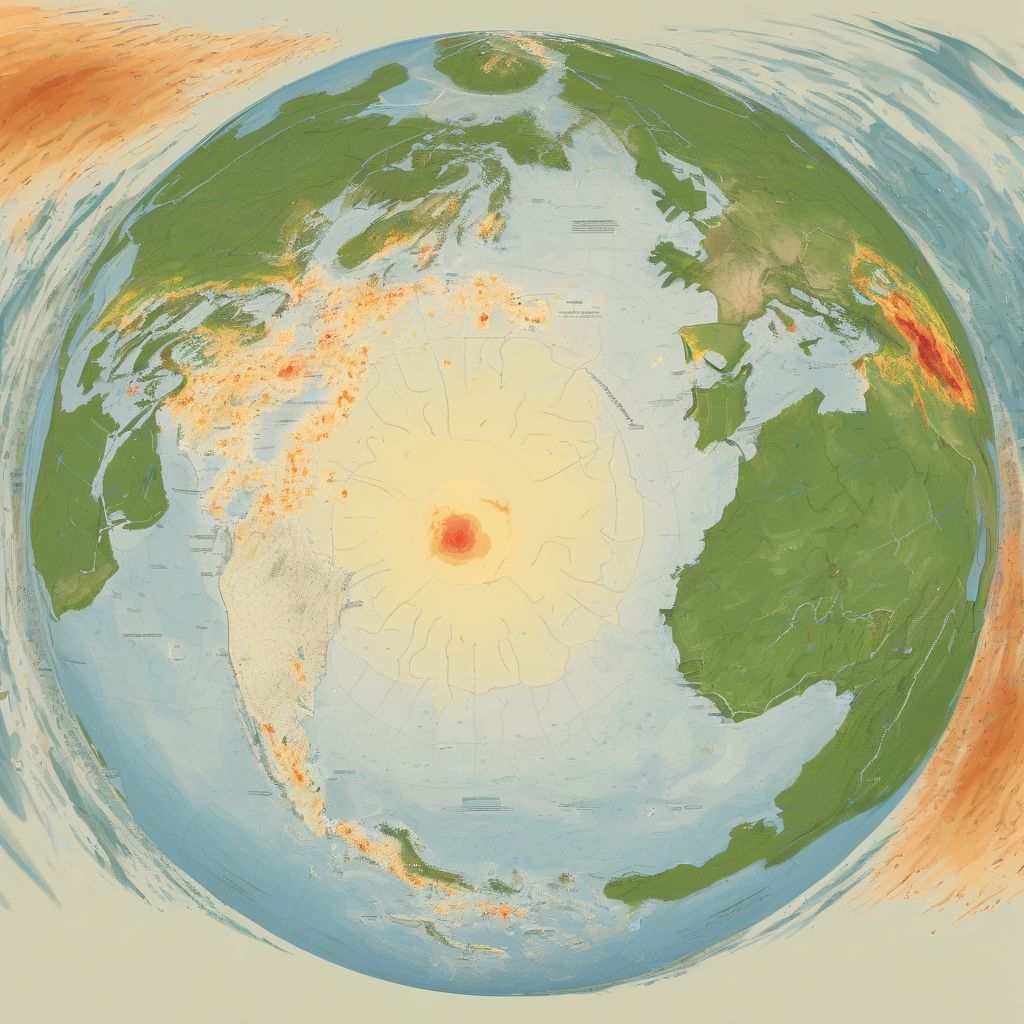Imagine a world where extreme weather events are the norm, sea levels rise dramatically, and ecosystems struggle to survive. This isn’t a science fiction scenario, but a potential future if climate change continues unchecked. Understanding the latest research on climate change and global warming is crucial for navigating this challenge and building a sustainable future.
What Does the Latest Research Tell Us?
Recent studies paint a stark picture, confirming the long-term warming trend and highlighting the accelerating pace of change. The Intergovernmental Panel on Climate Change (IPCC), the leading international body for assessing climate change, released its Sixth Assessment Report (AR6) in 2021-2022, providing the most up-to-date scientific understanding. The report unequivocally states that human influence is the primary driver of these changes.
Rising Temperatures and Extreme Weather
Global average temperatures continue to rise, with the past decade being the hottest on record. This warming trend is fueling more frequent and intense heatwaves, droughts, wildfires, and floods. Research shows a clear link between climate change and the increased severity of extreme weather events, impacting communities and ecosystems worldwide. For instance, a study published in Nature Climate Change found that human-caused climate change made the 2020 Siberian heatwave 600 times more likely.
Melting Ice and Rising Sea Levels
The latest research confirms the alarming rate at which glaciers and ice sheets are melting, contributing to rising sea levels. Studies using satellite data show a significant acceleration in ice loss from Greenland and Antarctica. This poses a direct threat to coastal communities and ecosystems, increasing the risk of flooding and erosion. The IPCC projects that sea levels could rise by up to one meter by the end of the century under a high-emissions scenario.
Ocean Acidification and Ecosystem Disruption
The absorption of excess carbon dioxide by the oceans is causing acidification, impacting marine life. Studies show that ocean acidity has increased by approximately 30% since the beginning of the industrial revolution. This poses a serious threat to coral reefs, shellfish, and other marine organisms. The disruption of ocean ecosystems has cascading effects on food webs and the livelihoods of communities that depend on them.
Impacts on Human Health
Climate change is not just an environmental issue; it’s a public health crisis. The latest research highlights the direct and indirect impacts of climate change on human health, including heat-related illnesses, respiratory problems, and the spread of infectious diseases. Vulnerable populations, such as children, the elderly, and those with pre-existing conditions, are particularly at risk.
 Climate Change Impact on Earth
Climate Change Impact on Earth
What Can We Do?
While the latest research paints a concerning picture, it also offers hope. We have the knowledge and the tools to mitigate climate change and adapt to its impacts.
Transitioning to Renewable Energy
A key strategy for reducing greenhouse gas emissions is transitioning from fossil fuels to renewable energy sources such as solar, wind, and geothermal. Research shows that rapid decarbonization of the energy sector is feasible and economically viable.
Enhancing Carbon Sinks
Protecting and restoring forests, wetlands, and other natural carbon sinks is crucial for absorbing carbon dioxide from the atmosphere. Studies demonstrate the significant potential of natural climate solutions in mitigating climate change.
Adapting to a Changing Climate
Adaptation measures are essential for managing the unavoidable impacts of climate change. This includes developing drought-resistant crops, building seawalls, and implementing early warning systems for extreme weather events.
Individual Actions Matter
Individual choices, such as reducing meat consumption, choosing sustainable transportation, and conserving energy, can collectively make a difference.
Conclusion
The latest research on climate change and global warming underscores the urgency of action. While the challenges are significant, so are the opportunities. By embracing sustainable practices, investing in innovative technologies, and working together, we can build a more resilient and sustainable future for generations to come. Let’s engage in thoughtful discussions, share this vital information, and contribute to the collective effort to address this global challenge. What are your thoughts on how we can accelerate climate action? Share your ideas in the comments below.



